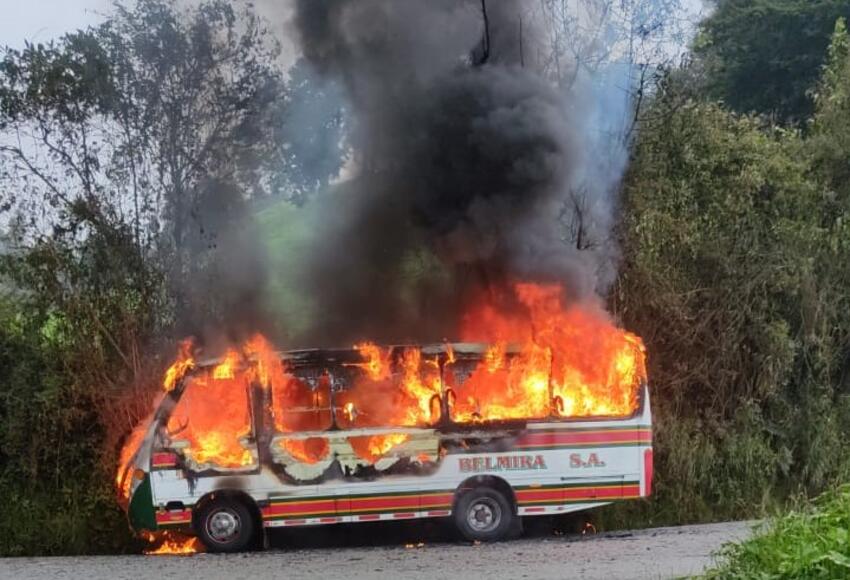The Minister of Justice and Human Rights, Marcela Ríos, spoke about the status of the pardon project for the so-called “prisoners of the revolt”, pointing out that “the Government made this project urgent precisely because it is a commitment, a priority, but also We know we don’t have all the support we need in the Senate to get it through the floor.”
in conversation with The Mercury, Minister Ríos explained that, in the face of the reluctance generated by the project in the opposition, “we are in a round of talks (…) to see if we manage to have an alternative formula or be able to improve what we have today.” In any case, the head of Justice said that the pardon “continues to be on our agenda.”
Asked if she considers Celestino Córdova a political prisoner, the Secretary of State indicated “it is not up to me to pronounce on the specific qualification of the cases.” Along the same lines, Ríos stated: “The ministry also promised to carry out an indigenous consultation process, which must be carried out in dialogue with indigenous people deprived of liberty.”
You may also like:
The statements of the head of Justice were addressed by the President of the Independent Democratic Union (UDI), Javier Macaya, who held a meeting during the week with President Gabriel Boric, regarding the need to advance in a “national agreement for security”, as a result of the latest acts of violence with firearms that have been registered in the country.
You may also like:
In interview with Channel 13, Deputy Macaya pointed out that said meeting took place because the President “has the conviction that in order for the country to move forward, it is necessary to have a political dialogue with all the actors.” However, immediately afterwards, the trade union helmsman stressed that for there to be progress in security, the government of President Boric “must take responsibility for its deficiencies and change its attitude from the past.”
Javier Macaya added: “the signals that have been given are super wrong: a pardon project for the outbreak, the withdrawal of the complaints of the Internal Security Law, the prison benefit to Celestino Córdova, in short.”
The president of the UDI also stated that he disagrees with the Minister of Justice, Marcela Ríos, and maintained that in his opinion “the pardon cannot be part of a great agreement on security matters.”
“Faced with the insistence of the Minister of Justice for the Pardon Law, which installs Impunity from La Moneda, we will ask that this week it be put on the table. This disastrous project will be rejected even with votes from the ruling party,” he lashed out on social networks. Senator UDI Iván Moreira, along with the following video:
Following the statements of the Secretary of State, the Secretary General of the RN, Diego Schalper, also spoke, who questioned on Twitter: How is dialogue going to be credible by public order, when not only do they not exercise the powers they have to put more order -state of exception-, but they also send signals like these: pardon violentists as a priority?”
“Gabriel Boric, order and act before convening!” Schalper raised, summoning the President.
Minister Ríos was also addressed by Senator from Evópoli Luciano Cruz-Coke. He said that “we will not accept complicity in this falsehood”, in line with Moreira, along with advancing that he will ask the Senate committees to put it to a vote this week. “Project is in the Senate ready for table. We can vote on it this week, however the government does not withdraw it and every week it extends its urgency,” he added.
It is worth mentioning that last Monday, March 21, the Minister of the General Secretariat of the Presidency (Segpres), Giorgio Jackson, reported that the Government had given great urgency to the amnesty project for those convicted in the context of the social demonstrations that began in October 2019. This announcement generated a series of criticisms both from the opposition and from the ruling party itself, which generated the first round between the Executive and the parliamentarians of the sector.
Given this scenario, the Chamber of Deputies approved “Resolution 19” by 76 votes in favor, 47 against and 22 abstentions, which expresses its rejection of the urgency provided by the President of the Republic Gabriel Boric for the project of pardon








